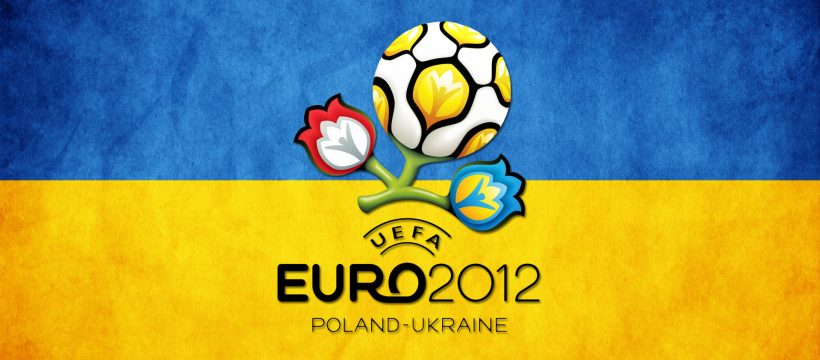The earliest incarnation of the UEFA European Championships was the Nations Cup, which was first contested in 1960. An initial seventeen countries entered, with four progressing through a knock-out qualifying competition to the final tournament. The final four teams were Czechoslovakia, France, the Soviet Union and Yugoslavia. Of the four, France were chosen to host the tournament. The French met Yugoslavia in the first semi final in Paris, but despite leading 4-2 with less than twenty minutes remaining they contrived to lose 5-4. They then lost to the Czechoslovakians in a third place play-off, to finish a disappointing fourth overall.
Spain Become European Champions
By 1964 the competition had expanded to 29 nations, but the format remained basically the same. This time the final four nations were Denmark, Hungary, Spain and the defending champions, the Soviet Union. The Spanish were selected as hosts. An extra time victory over Hungary in Madrid took Spain into the final, where they met the Soviet Union. The match was a tense affair, settled as late as the 84th minute, when a Marcelino Martinez strike gave Spain a victory on home soil.
The 1968 tournament was renamed the European Championships, and the knock out qualification structure was replaced with group leagues. However the final tournament still comprised only four teams, and the host was again chosen only after qualification. Yugoslavia and the Soviet Union were again among the semi finalists, with England making a first appearance, alongside host nation Italy. Italy met the Soviet Union in their semi final, but the sides could not be separated, and in the end Italy progressed thanks to a coin toss after a goalless draw. The final, against Yugoslavia, ended 1-1, but this time a replay was allowed, which Italy won 2-0. Once again the host nation had proved victorious.
Belgium and Yugoslavia Struggle as Hosts
The format remained the same in 1972, with Belgium chosen to host Hungary, West Germany and perennial finalists the Soviet Union. Belgium became the first host nation since the inaugural championship not to reach the final when the lost out 2-1 to West Germany in Antwerp, but they did salvage some pride with a victory by the same score over Hungary in the third place play off. Yugoslavia had the honour of hosting in 1976, but like Belgium they failed to make the final of their own tournament. They also lost the third place play off, going down 3-2 to the Netherlands after extra time.
1980 was the first time the host nation did not have to qualify for the final tournament. It also saw the expansion of the final competition to eight nations. Italy were chosen as hosts, and set out to try and emulate their success of 1968. Their progress through the group stage was unspectacular, with only one goal in three games. However, that was enough to secure victory over England, and two goalless draws in their remaining matches allowed them to finish second in the group, and qualify for the third place play off, which they lost to Czechoslovakia after a penalty shoot out.
France Make Good Use of Home Advantage
The 1984 competition employed a similar format, but with the introduction of semi finals, and the end of third place play offs. France hosted, and topped their group in style with three wins out of three, including a five goal demolition of Belgium. An extra time winner from Michel Platini was enough to see off Portugal in the semi final, and France marched on to the final in Paris, where they beat Spain 2-0, becoming the third team to win the championship as hosts.
West Germany looked like emulating them four years later after topping their group with victories over Spain and Denmark, but they were shocked by the Netherlands in the semi final in Hamburg. The 1992 cup was the last to feature only eight teams in the finals. Sweden hosted, and after drawing their first two matches won a late victory over England to make the last four. That was the limit to their achievement however, as they went on to lose to Germany.
England were the host nation for the expanded Euro 96, and after a dull draw against Switzerland in their opening match they saw off Scotland and the Netherlands to reach the quarter final stage. A penalty shoot out win over Spain put glory in sight, but England were then on the wrong end of a shoot out defeat against Germany, and for the third successive tournament the hosts fell at the semi final stage.
Co-Hosts as Euro 2000
Euro 2000 was the first to feature co-hosts, with Belgium and the Netherlands sharing the honour. Belgium won their opening match, but then lost twice to be eliminated at the group stage. The Netherlands fared rather better, winning their opening three matches, including a victory over World Champions France. A 6-1 thrashing of Yugoslavia in the last eight seemed to make the Dutch favourites for the trophy, but the curse of the semi final struck once again, and the co-hosts lost out after a penalty shoot out against Italy.
Portugal hosted in 2004, and were stunned by Greece in their opening match. They recovered with two wins to reach the last eight, where they eliminated England after a penalty shoot out. The Netherlands were beaten in the last four, and Portugal became the first hosts to reach the final since France in 1984. However they were unable to clinch the trophy, as Greece pulled off another remarkable victory.
Austria and Switzerland shared hosting duties in 2008, but neither made much impact on the tournament. The Swiss lost their opening two matches, and were already eliminated before they salvaged some pride with a victory over Portugal. The Austrians fared worse still, managing only one goal and one point from their three matches.
Poland and Ukraine will hope to do better in 2012.
